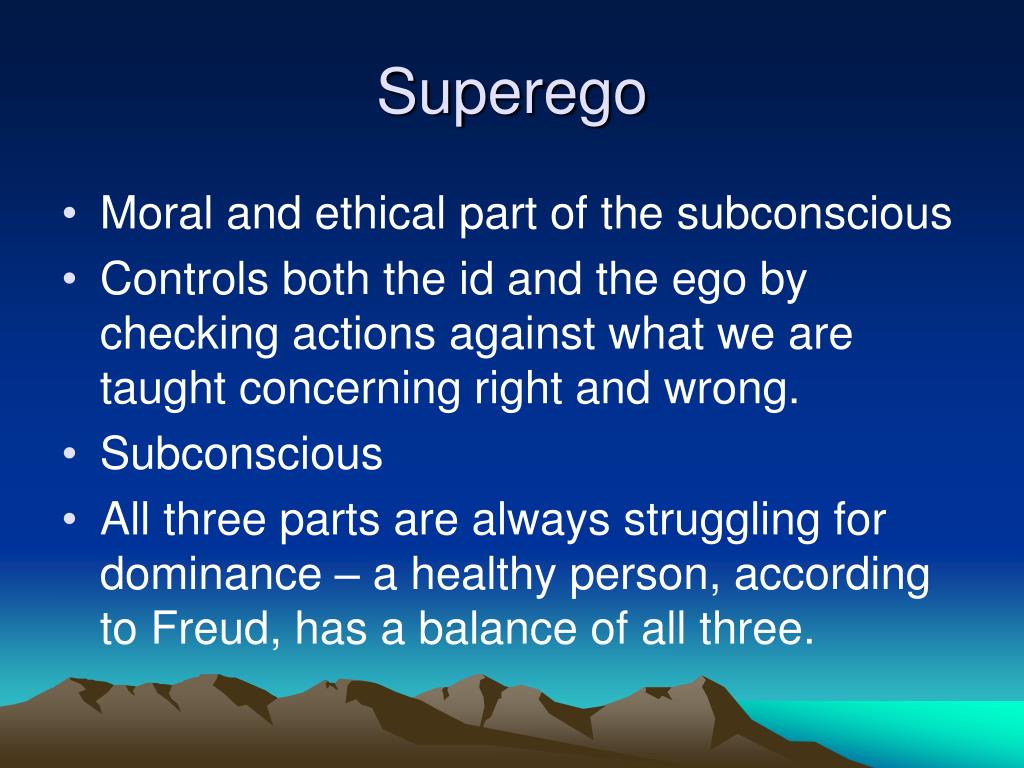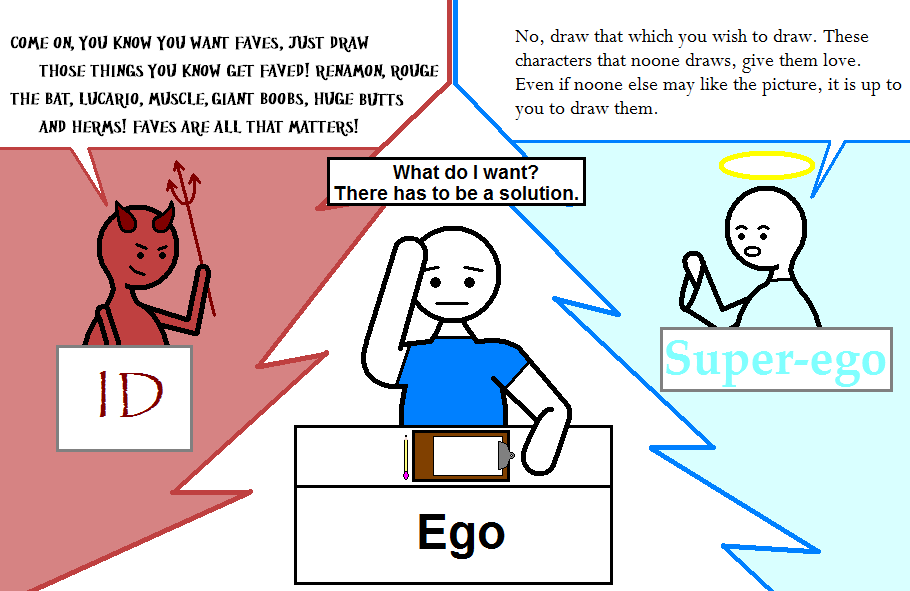
The superego, acting as some form of conscience, keeps us in check with what it perceives as “good” or “bad” but as conscience is deeply related to a sense of guilt and, when the inner voice becomes punitive and unrealistic about its expectations, it can become a problem. Why is it relevant to you? Our need to obey, honour and maintain the social order in which we live is rooted in infancy and early childhood and it continues to develop in our lives as a form of respect for law and social order as imposed (and ingrained) on us by the society we live in. “ Civilization and its Discontents”, 1930) Sometimes it praises us for “good” behaviour, sometimes it manifests itself in the form of a punitive voice for what the it perceives is bad behaviour.įreud also explains that the establishment of this critical inner voice is what makes civilization possible as, by repressing our most powerful instinctual urges, it allows us to live together in a complex social unit such as towns, cities etc… However, it also comes at a cost: “the loss of happiness through the heightening of this sense of guilt” (Freud, S. SuperegoĪccording to Freud the superego is like the voice of authority that once belonged to the parents and that with time has become part of ourselves. Think of it this way, if you swap the noun “superego” with the noun “conscience”, you can start to see how important is to ensure that our superego/kinda conscience does not end up suffocating us with over perfectionisms. However, when the superego acts unconsciously to punish or suppress the id, we might end up with feelings of guilt and no real understanding of why we feel that way.įreud did not believe that the superego is the same as our conscience, but there are similarities as sometimes it speaks directly to us in a parent like voice “don’t do this….do that…”.


When the superego acts in the conscious mind, we are aware of our resulting feelings.

This is because, according to Freud, the super-ego reflects the internalization of cultural rules, mainly taught by parents applying their guidance and influence which starts at a very early age. Here’s why: the existence of the super-ego is observable in how people can view themselves as bad, shameful, guilty, weak, and feel compelled to do certain things. Although psychoanalysis may seem to some a bit too intense and perhaps a little over analysed, I think there’s a few concepts out there than can truly help us preserve our well-being and that’s why I want to introduce you to the superego at the unconscious level. In other words, if we are able to extract the essence of how or psyche works, we can lead a better life. I believe that knowing how our mind works can help us to unravel why we do and feel the way we do and feel and aid us to better understand why people do what they do and why they affect us in such ways. What’s more fascinating is that the superego is present at a conscious, preconscious, and unconscious level making the latter the more difficult to figure out and manage. The goal of the superego, which strives for moral perfections without taking into account the actual reality, is to try to civilize and perfect our behaviour by suppressing all unacceptable primeval urges of the id and while struggling to make the ego act upon idealistic standards rather that upon realistic principles. The id is the more primitive and instinctual part of the mind that contains sexual and aggressive drives as well as hidden memories, the super-ego operates as a moral conscience, and the ego is the realistic part that mediates between the desires of the id and the super-ego. Understanding it can become one of the most powerful tools to unlock mental well-being.Īccording to Freud’s personality theory (1923) our psyche is structured into three parts that develop at different stages in our lives: id, ego and superego. We all have a superego although some of us call it differently: conscience, morality or something to do with a guilty voice inside of us.


 0 kommentar(er)
0 kommentar(er)
